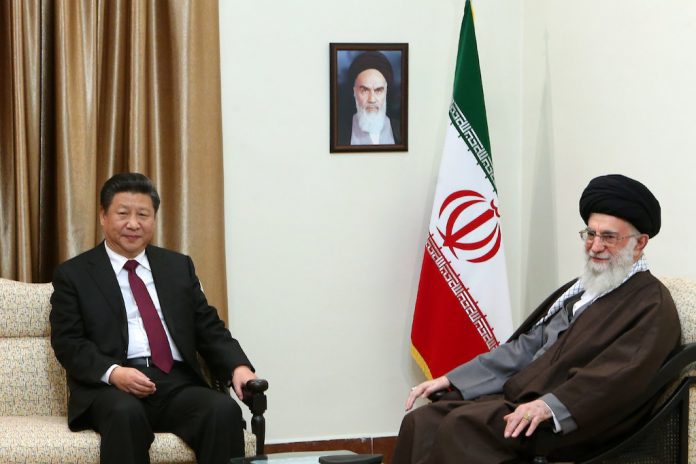After a period of over four months, transit trade with Afghanistan via the Wagah-Attari land crossing (boundary separating India and Pakistan) has resumed recently. Trading through the land crossing was suspended on March 13, 2020 as a precaution against Covid-19.
The Pakistan government permitted the movement of Afghan trucks from July 15 through Wagah under the Afghanistan-Pakistan transit trade agreement (APTTA). A press release was issued by the Ministry of Foreign Affairs, Pakistan, stating that Islamabad had decided to permit India-Afghanistan trade through Pakistan after a request from Kabul. As of July 21, 2020, 15 trucks with goods, mostly dry fruits of over Rs. 5 crore crossed over into India via the Wagah-Attari land crossing.
Punjab based traders, especially from the city of Amritsar, once an important trade centre, have heaved a sigh of relief and have already placed orders for dry fruits from Afghanistan. The resumption of business via the land route will help in giving a boost to specific sectors like the dry fruit sector, and also help in reviving jobs, especially of truckers, of individuals employed in this sector.
Revival of India-Pakistan trade?
Traders from the border state, while welcoming the decision to open up transit trade, also pushed for the resumption of bilateral trade with Pakistan through the Wagah-Attari land crossing. Bilateral trade was suspended by Pakistan after the abrogation of Article 370 in Jammu and Kashmir. While this seems a pipe dream given the fact that relations between New Delhi and Islamabad are their lowest ebb — in the long run this cannot be ruled out.
The Iran-China agreement and its importance for India’s connectivity initiatives
The resumption of India’s trade with Afghanistan via Wagah-Attari has come at an interesting time. Iran and China have signed a 25 year agreement under which China will invest a whopping $400 billion in Iran. Under the agreement, $280 billion will be allocated to Iran’s energy sector, 120 billion is likely to be estimated in important connectivity projects which will complement China’s Belt and Road Initiative (BRI) project. The Iranian Foreign Minister, Muhammad Javad Zarif in a briefing to the country’s parliament stated that his government was negotiating this deal with confidence; it has drawn criticism from a number of leaders including the Former President Mahmoud Ahmadinejad.
One of the important aspects of the deal is the access which Iran is likely to provide China to the Port of Jask, a port outside the Strait of Hormuz. According to many analysts, China’s access to this port may reduce the importance of the Chabahar Port which has been touted as India’s gateway to Afghanistan and Central Asia. While India has set up air corridors with Afghanistan (New Delhi-Kabul and New Delhi-Herat), the Chabahar Port has been perceived as the most dependable means of enhancing economic linkages and connectivity with Kabul.
During Indian Prime Minister Modi’s visit to Iran in May 2016, an agreement had been signed to enhance trilateral connectivity between India-Iran-Afghanistan with the Chabahar Port being the key facilitator of the same. India has committed $500 million to this project. In 2019, India handed over phase 1 of the project (India has committed. The port has been used for trade with Afghanistan. During the pandemic India sent relief materials to Afghanistan via the port.
Some news reports stated that Iran was keeping India out from the 628 kilometre Chabahar-Zahedan link, though this was denied vehemently by the Iranian side.
Many observers believe that through this agreement not only Iran-China ties will improve, but Beijing is also likely to strengthen economic ties with Afghanistan. In recent years, India has cultivated robust strategic and economic ties with Kabul and would keep a careful watch on the Iran-China agreement. While Iran is likely to follow its own course vis-à-vis Beijing, New Delhi needs to safeguard its interests with regard to Afghanistan.
With regard to regional connectivity, New Delhi’s task is cut out. A less tense India-Pakistan relationship, and the resumption not just of bilateral trade but Pakistan providing New Delhi access to Afghanistan and Central Asia would benefit both countries economically, for the time being this seems highly unlikely.
There is a belief that the exit of Donald Trump may pave the way for a more flexible Iran policy, which may give India more elbow room. Joe Biden, Democratic presidential candidate seems less belligerent in his tone towards Iran.
New Delhi would also be paying close attention to the impact of the Beijing-Kabul ties. It is important for New Delhi to be deft and pragmatic in its neighborhood policy.
The views and opinions expressed in this article are those of the author.

Tridivesh Singh Maini is a New Delhi based analyst interested in Punjab-Punjab linkages as well as Partition Studies. Maini co-authored ‘Humanity Amidst Insanity: Hope During and After the Indo-Pak Partition’ (New Delhi: UBSPD, 2008) with Tahir Malik and Ali Farooq Malik. He can be reached at [email protected].


